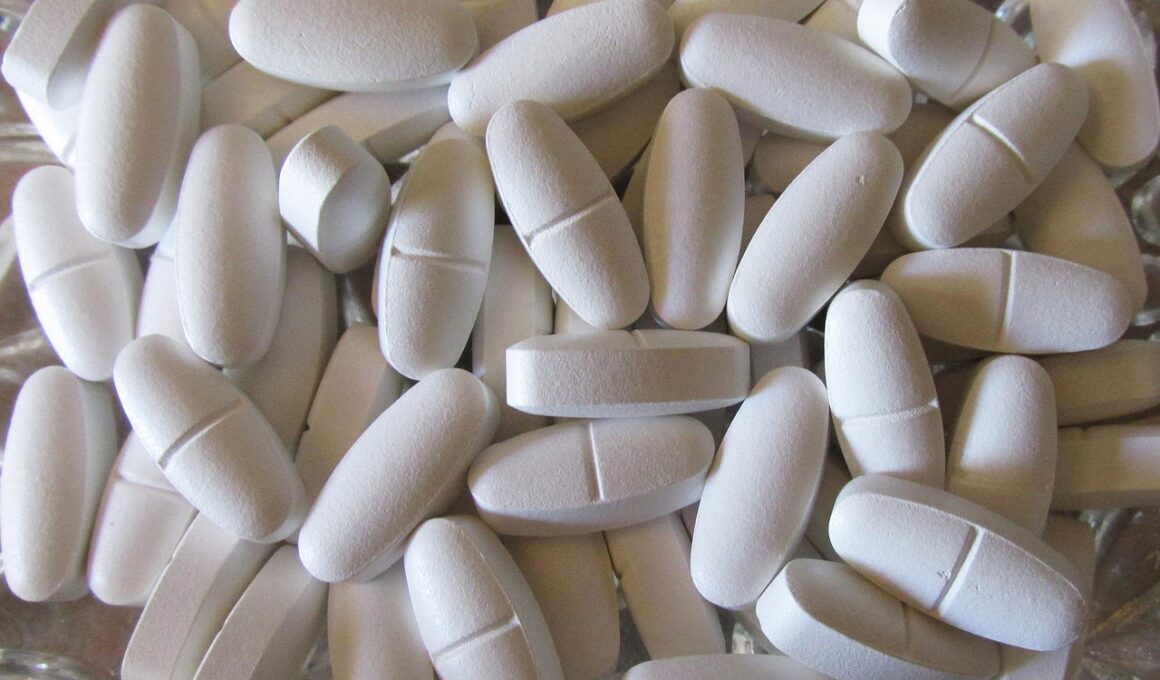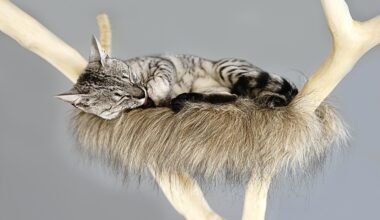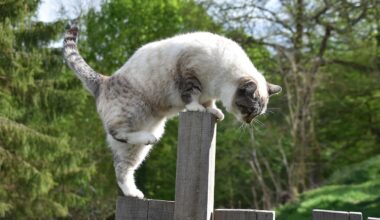Key Nutrients to Support Bone Health Alongside Calcium in Cats
When it comes to ensuring the well-being of our feline friends, bone health is essential. While calcium is indeed a primary nutrient that contributes to this aspect, it is not the only one required for maintaining optimal bone integrity. Various other nutrients can promote and bolster bone health in cats. Understanding these is critical for pet owners who prioritize their cat’s nutrition. A balanced diet, alongside the right supplements, can make a significant difference in your cat’s overall physical condition. Nutrients such as phosphorus, vitamin D, magnesium, and certain fatty acids also play a crucial role in enhancing calcium’s effectiveness. In this article, we will delve deeper into these essential nutrients, how they work in conjunction with calcium, and the potential benefits they present to your cat’s bone health. Each of these components is important not just for bone density but also for overall vitality. By equipping yourself with knowledge about these nutrients, you can make better decisions regarding your cat’s diet and ensure they lead healthy, active lives.
Phosphorus: A Key Contributor
Phosphorus, often overlooked, significantly impacts your cat’s bone health. This mineral works in tandem with calcium to form healthy bones and teeth. In fact, phosphorus accounts for about 85% of the mineral content of bones. A proper phosphorus-to-calcium ratio is essential to maximise bone strength. For optimal calcium absorption, the recommended ratio is approximately 1:1. If your cat lacks phosphorus, they could experience bone weakness, which may lead to serious health issues over time. Natural sources of phosphorus include meat, fish, and dairy products. Therefore, ensuring that your cat receives adequate levels of phosphorus must be part of your nutritional plan. If you’re considering supplements, consult with your veterinarian as excess phosphorus can cause complications. Be mindful that food labels often note phosphorus content, helping you to make informed choices. Properly balancing phosphorus intake can aid your feline friend’s development and overall bone health. Keeping in mind the daily nutritional requirements helps in preventing osteoporosis, which can be prevalent among older cats.
Vitamin D is another vital component in ensuring healthy bones for cats. This vitamin facilitates the absorption of calcium and phosphorus in the body. Without sufficient vitamin D, no matter how much calcium and phosphorus your cat consumes, their bones may not develop properly. This vitamin can be found in fatty fish, liver, and egg yolks; however, cats can also synthesize vitamin D from sunlight. Indoor cats may require additional supplementation, especially during winter months when sunlight is scarce. Consulting with your vet about the right dose of vitamin D for your cat can help prevent issues related to bone growth and density. Balancing vitamin D levels is crucial, as both deficiency and excess can lead to severe health issues. Vitamin D deficiencies can result in weaker bones, while excess levels could cause toxicity. Making sure that your cat has a readily available source of vitamin D, either through diet or sunlight exposure, is essential for maintaining strong bones and overall health throughout their lifespan.
Magnesium: Another Essential Mineral
Magnesium plays a somewhat underappreciated role in bone health, yet it remains just as crucial. This mineral contributes to the structural development of bones and helps convert vitamin D into its active form, which further aids calcium absorption. Magnesium deficiency can lead to problems like osteoporosis or weakening bones. The beneficial aspect of magnesium is that it assists in the formation of bone mineral and may help with muscle function, too. Cats can obtain magnesium from sources like green leafy vegetables, meat, and seafood. Additionally, the right magnesium levels ensure that calcium and phosphorus are effectively utilized by the skeletal system. As with any supplement, over-supplementation of magnesium can also pose risks, so it is essential to adhere to recommended guidelines. Regularly evaluate your cat’s diet for magnesium content and consider discussing supplementation with your veterinary specialist, especially if you have an older cat that may need extensive nutritional support for maintaining healthy bones. Enriching their meals with appropriate minerals can significantly enhance their overall quality of life.
In addition to vitamins and minerals, specific fatty acids contribute to bone health in cats. Omega-3 fatty acids are well-known for their anti-inflammatory properties. Inflammation can often lead to bone deterioration and increase the risk of fractures. Including sources rich in these fatty acids, such as fish oil or flaxseed, helps alleviate potential inflammation affecting the bones. Omega-6 fatty acids also play a role in bone health, promoting circulation and ensuring nutrients reach the bones and supporting tissues effectively. Proper balance is crucial when considering fatty acids, as an excess can lead to nutritional imbalances. The ratio between omega-3 and omega-6 fatty acids counts, with a higher omega-3 content typically being beneficial. Offering fish-based diets or supplements can provide a safe way to boost these fatty acid levels for your cat. Always consult with a veterinarian regarding the best sources and amounts before initiating any specific supplement. Understanding the role of these fatty acids in cat nutrition sets the stage for enhanced well-being and fewer bone-related health concerns.
Preventive Measures for Bone Health
Selecting the right combination of nutrients is vital, but there are additional preventive measures to support your cat’s bone health. Weight management is crucial since excess weight can lead to joint stress, increasing the risk of bone-related complications. Regular physical activity, including playtime, is essential for strengthening bones and muscles. Activities like climbing and jumping encourage bone density. Providing scratching posts or climbing trees helps cats exercise naturally. Ensuring hydration is equally important, as water supports nutrient absorption. Routine veterinary check-ups provide insights into your cat’s health, allowing for timely interventions if needed. You can also incorporate raw or lightly cooked meats, which often contain more nutrients compared to heavily processed foods. Pay special attention to your cat’s age, breed, and health issues, as these factors can impact specific dietary needs. Engaging in proactive health measures ensures that your feline friend leads a happy, healthy life filled with mobility and strength. Supporting their bone health through balanced nutrition and an active lifestyle is a long-term investment in their overall well-being.
In conclusion, understanding the essential nutrients that support bone health in cats, alongside calcium, is imperative for pet owners. Incorporating phosphorus, vitamin D, magnesium, and fatty acids into your cat’s diet collectively provide a robust approach to ensuring their bones remain strong and healthy. Adequate nutrition fosters a foundation that can prevent future health issues such as osteoporosis and fractures. Regularly monitoring your pet’s dietary intake and consulting with your veterinarian can ensure they receive the nutrients they need for optimal bone health. Every cat is unique, and individual needs may vary based on age, breed, and overall health. Knowledge of these requirements allows you to tailor their diet appropriately, making changes as necessary. Additionally, fostering a dynamic lifestyle through regular physical activity contributes significantly to strong bones. Remember that proactive measures foster long-term well-being and improved quality of life for your feline companions. Ensure that these nutritional factors are a priority in your cat’s daily regimen for them to thrive significantly.


